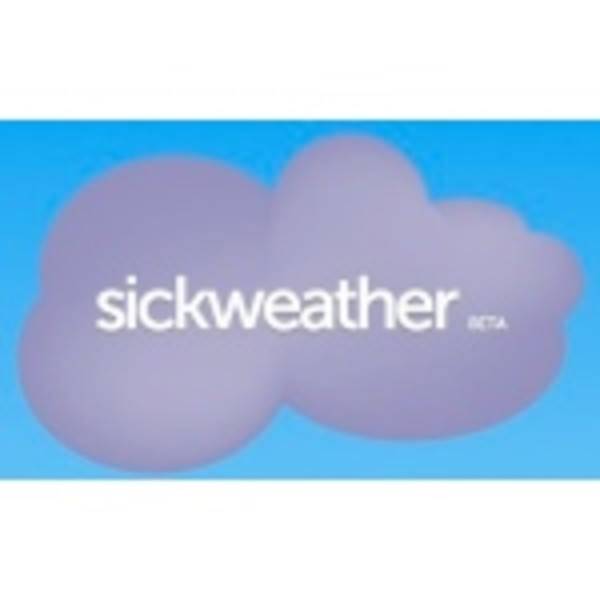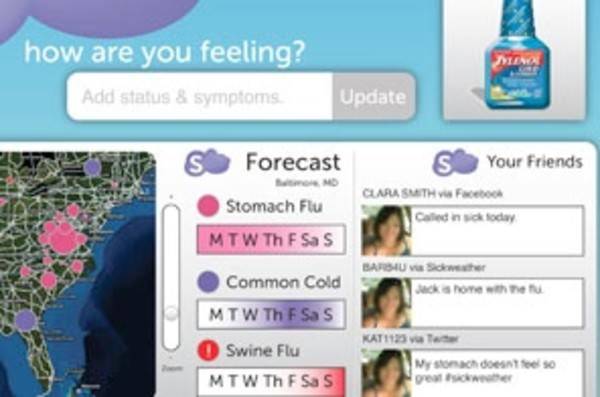There have probably been times when just a cursory glance at your Facebook feed or Twitter stream reminds you that it’s flu season and plenty of your friends’ status updates referred to some sort of sneezy, snuffly, achy, barfy condition. Thanks to mobile technology, that’s something you can still do while sick in bed: post to your various social networks.

For the healthy among us, these sorts of status updates serve as a good reminder of who we should steer clear of. But at a larger scale, this social data can give other warnings about where diseases clusters are occurring. And unlike the sorts of statistics released by the Center for Disease Control, this social data can be tracked in real-time.
That’s the aim of a new startup called Sickweather. The company, which is still in private beta, wants to track the signs of sickness via social networks and generate maps so that people can determine who and where to avoid.
Data Mining Every Sneezy Status Update
Sickweather wants to build a social network around this sort of information, but currently the startup is utilizing publicly available social data. By mining Facebook and Twitter for certain keywords, the company can ascertain where there are disease outbreaks.

Sickweather isn’t the only company thinking about the ways in which our online data can be utilized to track illness. Earlier this week, Google noted that it was monitoring search patterns around Dengue Fever in order to track the spread of the virus.
Google says that it wants to be able to build an “early warning system” of sorts, and Sickweather’s aims are similar, but usese social rather than search information. The startup insists that the publicly available data it’s using right now is anonymized, and the company promises privacy protection as well. Tweeting that you’re staying home from work because of a wicked cough doesn’t mean that Sickweather will point to you as the vector or that it will offer any particular diagnosis about what illness you have. But taken with other people’s updates, also complaining about similar symptoms, the company’s algorithm will be able to pinpoint places to avoid.
The company plans to build out a number of apps for Facebook and Twitter as well as for mobile devices. Through these the company plans to offer different levels of access to data, from just being able to view generalized maps of flu outbreaks, for example, to more details about specifics and, as is the case with most social networks, to be able to share these with only certain friends and followers.
Privacy Concerns?
On one hand, Sickweather might raise some questions about medical privacy – do people want to be able to share this sort of personal information? But as the frequent Twitter and Facebook updates about illness demonstrate, people are already doing this. Sickweather hopes to be able to make better use of this information – at both an aggregate level, for certain cities for example, but also for people’s own social networks.

















